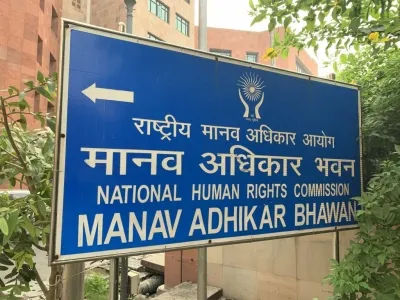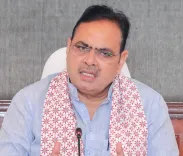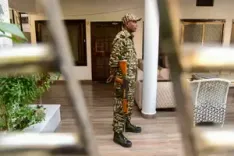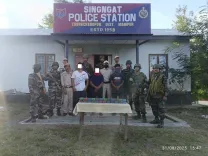Did NHRC Respond to the Building Collapse in Maharashtra’s Palghar?

Synopsis
Key Takeaways
- NHRC takes action in response to human rights violations.
- The building collapse resulted in 17 deaths and 8 injuries.
- Residents believed the building was authorized based on notarised documents.
- Inferior construction materials may have led to the collapse.
- Authorities ignored multiple evacuation notices.
New Delhi, Sep 3 (NationPress) The National Human Rights Commission (NHRC) has initiated suo motu cognisance following a media report that revealed the tragic deaths of 17 individuals and injuries to 8 others due to the partial collapse of a four-storey apartment in the Virar East area of Maharashtra’s Palghar.
As per the press report, this structure was unauthorized and had been built over a decade ago. Residents had been remitting taxes to the Vasai-Virar City Municipal Corporation (VVCMC), under the impression that the building was legitimate according to notarised documents.
The report further indicated that the collapsed edifice contained approximately 50 flats and several shops, with the rear section of the building, which included around 12 flats, failing.
A senior official from VVCMC suggested that the incident might be attributed to the use of substandard construction materials. Despite the issuance of three notices to residents to evacuate, these warnings were disregarded.
In response to the report, the NHRC underscored that if the details are accurate, they present grave concerns regarding human rights infringements. The commission has dispatched notices to the Maharashtra Chief Secretary and the Director General of Police (DGP), requesting a comprehensive report on the situation within a two-week timeframe.
Formed under the Protection of Human Rights Act, 1993, the NHRC is an autonomous statutory entity dedicated to the advocacy and safeguarding of human rights. Its core mission is to uphold human rights, defined as the rights associated with life, liberty, equality, and dignity of individuals as guaranteed by the Constitution or outlined in international treaties enforceable by Indian courts.
The apex human rights organization holds the authority to take suo motu action based on media reports, public awareness, or other informational sources, without necessitating a formal complaint regarding human rights abuses.






